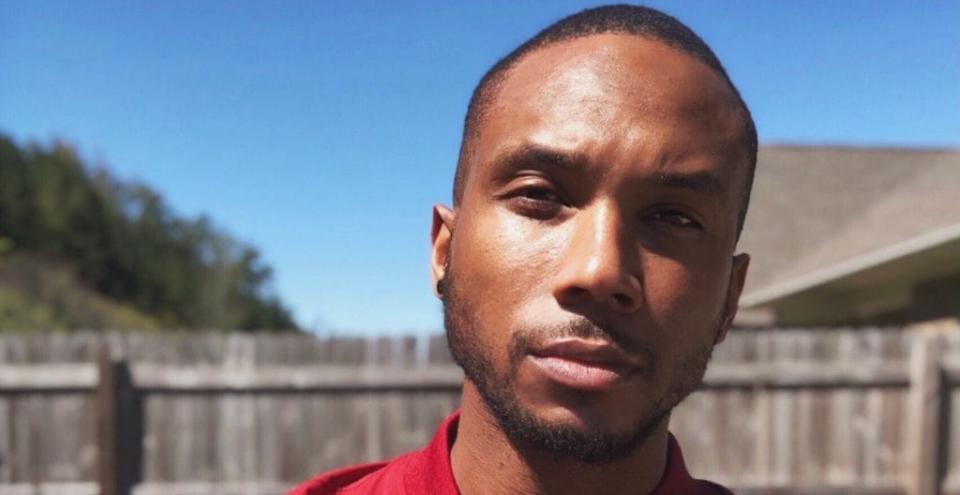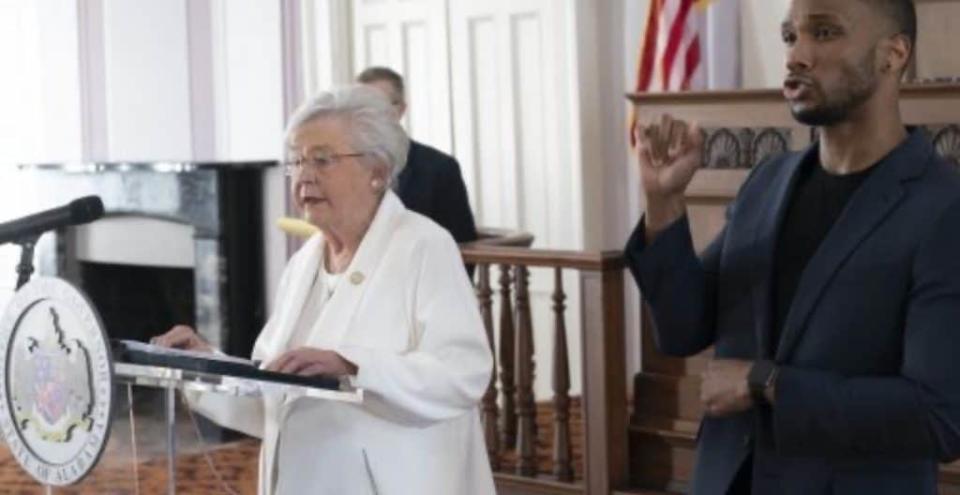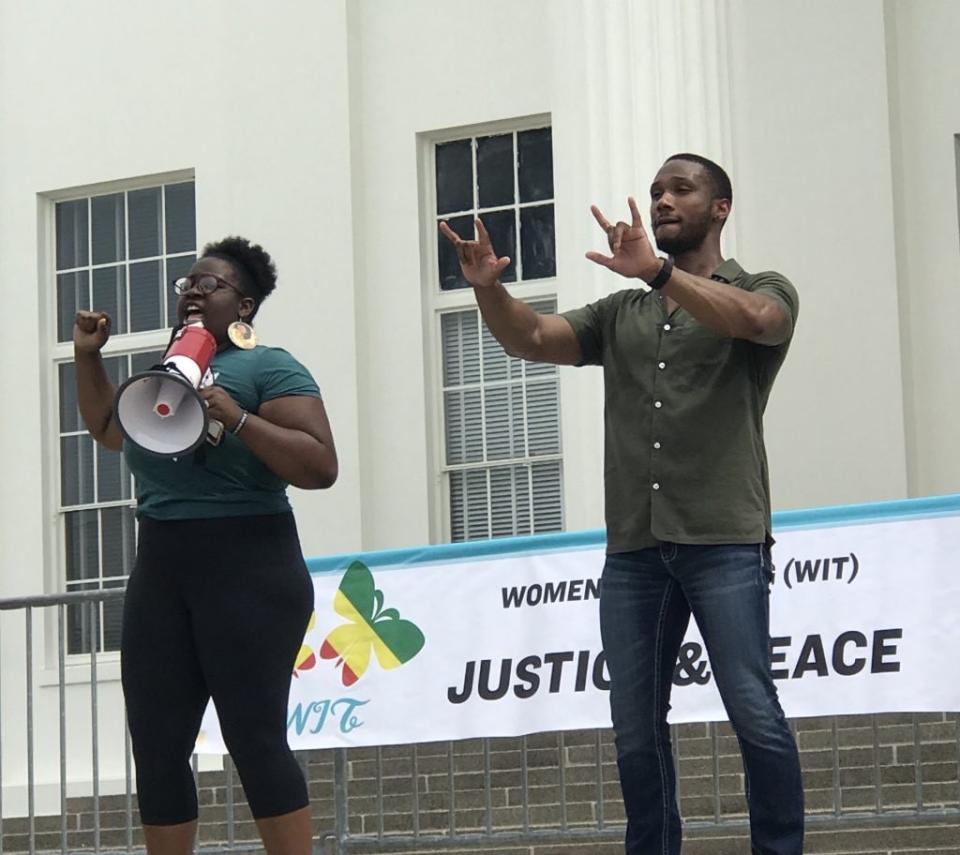Black trilingual interpreter is the face of representation for underserved community
“I am faced with racism in my everyday life and even within the interpreting community. I, personally, feel compelled to interpret these events,” Kenton Myers says.
Kenton Myers is fiercely trying to blaze a path where representation through people of color in the interpreter space is no longer an anomaly. Myers, a trilingual interpreter, helps the hard of hearing through his skills in American Sign Language (ASL), Spanish, and English.
The Alabama resident has been in the profession for about a decade and says it discovered him. Originally from Atlanta, Myers went to school at Birmingham-Southern College on a football scholarship and while there it was his academic advisor that inspired him to think more about languages in a modern world.

“Interpreting definitely found me one thousand percent,” he says to theGrio.
Read More: Vice President Kamala Harris weighs in on gun vs. Taser debate in Daunte Wright shooting
His interpreting career began by helping Spanish speakers at a local hospital, but he quickly noticed that the number of deaf patients increased and being able to help them communicate their needs proved difficult.
“I couldn’t communicate with people coming into the emergency department at the hospital I was working at and so I decided that sign language should be what I mastered next,” says Myers.
Since then, Myers has gone on to create his own business, M&N Language Services and on top of that, he has offered his skills to interpreting for Alabama Gov. Kay Ivey and as part of Black Lives Matter protest in Alabama during the summer of 2020. To date, he is only one of four certified Black interpreters in the state of Alabama.

“There are other Black interpreters don’t get me wrong and some of them are in the process of getting certified but as it stands now in Alabama there are only four of us that are certified,” he says.
In the most recent figure from the Centers for Disease Control and Prevention (CDC), people with hearing impediments make up about 6.8% of the population in Alabama. The breakdown of people of color ranks just below that and with only four certified interpreters in the state finding someone to identify with can be challenging.
“It’s just a lot of obstacles, not a lot of support or representation,” Myers says.
Read More: Devale Ellis pens children’s book on #BLM: ‘It’s my life’s journey’
Also adding, “A lot of Black interpreters find themselves starting in church because it’s like a safe space, you feel comforted and protected and out here in the real world it’s different.”
Myers says interpreters are predominately middle-aged white women and adds there is plenty of room for interpreters of color, but the industry doesn’t always welcome them in. “It’s hard sometimes because the panel judging you might not look like you at all and often times can determine if you are certified or not but doesn’t really understand Black feeling and emotion,” he says.
Myers recalls discovering how important the need was for Black interpreters while out on the frontlines of protest after the death of George Floyd and Breonna Taylor last year. The deaths of both Floyd and Taylor sparked nationwide protest and that include many people from the deaf and hard-of-hearing community that also wanted to lend their voices to the cause.
“I am faced with racism in my everyday life and even within the interpreting community. I, personally, feel compelled to interpret these events,” Myers says.
“I want the painful stories and testimonies to come off of black and brown hands,” he adds.

According to the Registry for Interpreters for the Deaf during a 2019 study – 84.9% of interpreters are women and in that same study Black interpreters making up only 5.4%. Myers, is also part of a small club of Black men who are interpreters and it’s not lost on him that when people see him whether it be on television for a press conference or on stage during a BLM protest that the full scope of the Black deaf experience is represented.
“I’m a hearing interpreter and to this day I get messages from Black people in Alabama who say that they have never identified with any of the interpreters they have come across until they saw me,” he says.
The mission for Myers is to change the landscape of what an interpreter looks like. The industry is dominated by white women and it’s become part of his life work to show that Black people have a place in the industry.
“I genuinely love what I do, interpreting language and culture it’s burning within me and it’s something that I plan on doing for the rest of my life,” Myers said.
Kelsey Minor is a two-time Emmy award-winning freelance writer based in New York City. You can follow his work through Twitter @theKELSEYminor
Have you subscribed to theGrio’s podcast “Dear Culture”? Download our newest episodes now!
TheGrio is now on Apple TV, Amazon Fire, and Roku. Download theGrio today!
The post Black trilingual interpreter is the face of representation for underserved community appeared first on TheGrio.

